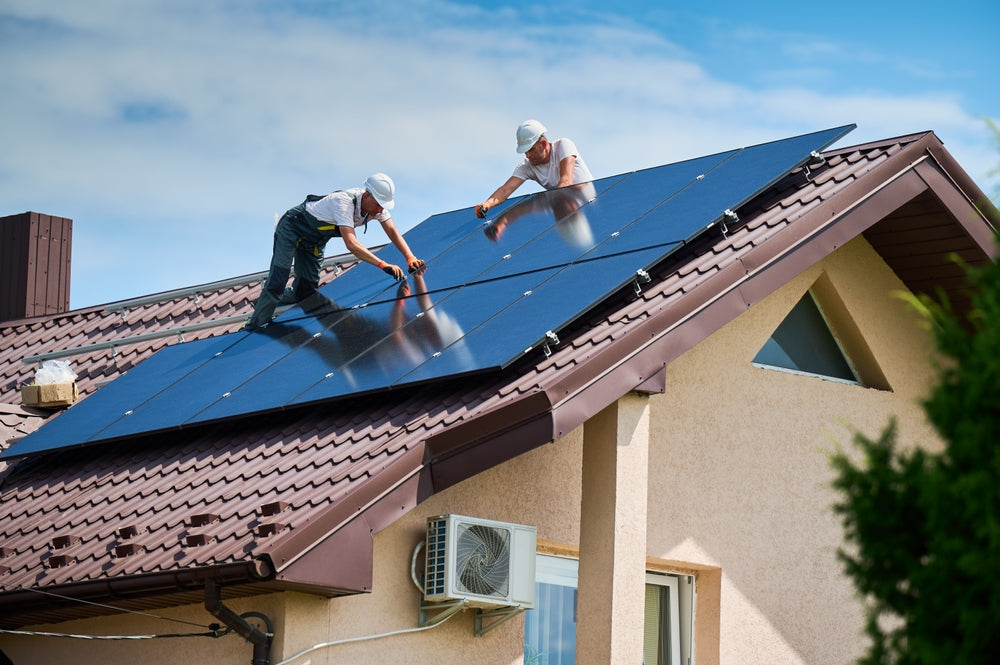
Solar Energy in Pakistan: A Bright Future
With Pakistan’s energy demands constantly rising, solar power has emerged as a reliable and eco-friendly alternative. Among various technologies, bifacial solar panels have gained notable attention for their ability to generate power from both sides. In a country blessed with sunlight most of the year, bifacial technology is a perfect match. It promises better efficiency, higher energy yield, and better return on investment.
But with so many brands flooding the market, it’s natural to wonder which ones are worth trusting. Whether you’re planning to power your home, business, or industrial setup, this list of the top 10 bifacial solar panel brands in Pakistan will help you make an informed decision.
Why Bifacial Technology is Taking Over
Before diving into the brand rankings, it’s essential to understand why bifacial solar panels are becoming a popular choice. Unlike traditional panels that capture sunlight only from the front, bifacial panels also absorb reflected light from the back. This feature boosts efficiency by 10 to 30 percent depending on installation conditions. That’s a big deal in regions like Pakistan where sunlight is plentiful.
Some of the most well-known names in bifacial technology include Jinko solar panels, astroenergy solar panels, and other high-performing global brands. These manufacturers not only offer cutting-edge bifacial options but also back their products with solid warranties, certifications, and track records. When looking for solar panels in Pakistan, it’s wise to prioritize these trusted providers.
The demand for solar panels, bifacial solar panel, Jinko solar panel, astroenergy solar panel in Pakistan has surged due to their consistent performance in heat and dust-prone environments. Bifacial modules are also ideal for rooftops, elevated structures, and ground-mounted setups with high reflectivity.
Jinko Solar – Efficiency with a Global Reputation
Jinko Solar is one of the most well-established names in the global solar market, and it has made a significant mark in Pakistan as well. Known for innovation and reliability, Jinko offers a wide range of products, including high-efficiency bifacial solar panels.
Their N-type and Tiger Pro series bifacial modules are particularly popular in Pakistan’s commercial and industrial sectors. These panels offer excellent output in high-temperature regions, making them well-suited for cities like Karachi, Lahore, and Multan. Distributors and installers often recommend Jinko for its solid warranties and after-sales support.
With its proven performance and presence across major Pakistani cities, Jinko remains a top choice for anyone looking to switch to bifacial technology.
Astroenergy – Affordable Performance with Tier-1 Quality
Also known as Astronergy, Astroenergy is a Tier-1 Chinese brand that has quickly gained traction in the Pakistani market. Their bifacial modules are praised for combining efficiency with affordability, making them an ideal choice for residential and mid-scale commercial projects.
Astroenergy’s panels use advanced monocrystalline cell technology, ensuring consistent output even under partial shading or cloudy weather. Installers value their flexible voltage ranges and minimal degradation rates. The brand has also earned praise for delivering solid quality at a competitive price point.
If you’re looking for a bifacial solar panel that balances cost and performance, astroenergy solar panel options are definitely worth exploring.
Canadian Solar – Trusted for Durability
Canadian Solar has been a reliable presence in Pakistan for years. Their bifacial modules, particularly the BiHiKu series, are designed for high energy yield and low maintenance. These panels are often seen on factory rooftops and large-scale solar farms due to their rugged build and dependable output.
The company’s strong local distribution network and availability of product variants make Canadian Solar a preferred choice for professionals who value durability. Their bifacial technology is backed by a comprehensive performance warranty, adding peace of mind for long-term investors.
JA Solar – High Performance for High Demands
JA Solar is another Tier-1 brand that brings excellent value to the table. Their bifacial modules use half-cell technology, which reduces resistance and increases efficiency. In Pakistani markets, JA Solar panels are often chosen for high-load applications like housing societies, schools, and offices.
These panels are also certified to withstand high wind and snow loads, which adds to their lifespan. Distributors across Pakistan offer JA Solar bifacial panels in various capacities, making them accessible for both small and large projects.
Trina Solar – Leading the Way in Bifacial R&D
Trina Solar has positioned itself as a leader in bifacial research and development. Their Vertex series includes some of the most advanced bifacial solar panels available, with capacities exceeding 600W. These high-wattage panels are ideal for industrial or institutional users looking for powerful and compact solutions.
In Pakistan, Trina Solar is popular among developers building energy parks or commercial plants. Their panels offer outstanding low-light performance and are certified for desert-like conditions, making them suitable for regions like Bahawalpur and interior Sindh.
Longi Solar – Reliable and Bankable
Longi Solar is widely recognized for its commitment to quality and innovation. Their bifacial modules are available with PERC and advanced N-type technologies, ensuring better long-term energy production. These panels are known to perform consistently even after years of exposure to heat and dust.
Pakistani businesses prefer Longi for their high availability and wide installer network. Their bankability and consistent product reviews give them a top spot in the minds of consultants and engineers.
JAHPUR Solar – Emerging Local Brand with Promise
While global giants dominate the market, local brands like JAHPUR Solar are starting to gain attention in Pakistan’s solar ecosystem. They offer cost-effective bifacial modules for home and shop owners. Though not as high-powered as imported options, JAHPUR’s products have made solar more accessible to the masses.
With increasing investment in local manufacturing, this brand could evolve into a serious contender in the next few years. Their focus on affordability and local support adds to their growing popularity.
Seraphim – Consistent Efficiency for Every Setting
Seraphim solar panels are gaining popularity for their all-weather performance. Their bifacial options are used in both on-grid and off-grid systems across Pakistan. Their glass-glass module construction makes them highly resistant to environmental damage, especially in coastal areas.
Installers who prioritize product reliability and panel strength often suggest Seraphim as a solid alternative to higher-priced brands. Their efficiency and long-term yield are well suited for Pakistan’s climatic conditions.
ZnShine Solar – Anti-PID and Self-Cleaning Innovation
ZnShine Solar stands out with its innovative coating technology. Their bifacial panels include anti-PID and self-cleaning glass, reducing the need for maintenance. This is particularly useful in dusty areas like Balochistan or southern Punjab.
Though a relatively new player in Pakistan, ZnShine’s focus on advanced features has made it a talking point among solar professionals looking for something different.
How to Choose the Right Bifacial Panel for You
Now that you know the top 10 bifacial solar panel brands in Pakistan, how do you choose the right one?
-
Evaluate your energy needs — a small home setup differs from an industrial-scale plant.
-
Compare output ratings and warranty terms.
-
Ask about real-world performance in Pakistani climate conditions.
-
Check for certification and Tier-1 listing to ensure reliability and quality.
-
Choose panels based on efficiency, budget, and space availability.
Also, don't forget to consult with a professional installer who understands local regulations, net metering procedures, and maintenance requirements.








